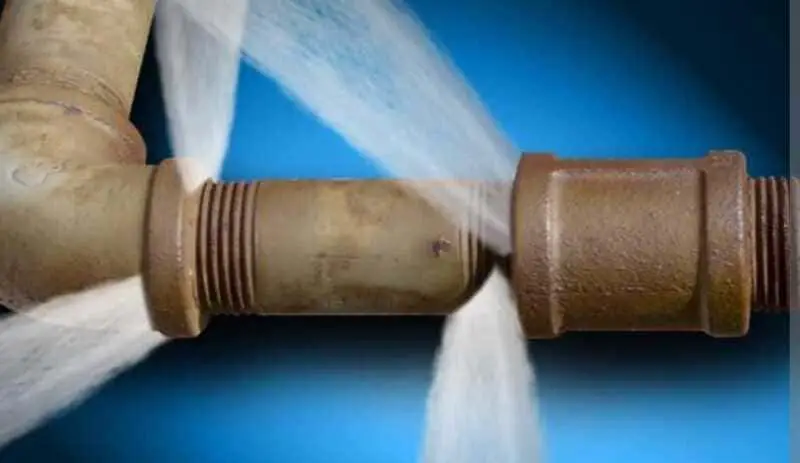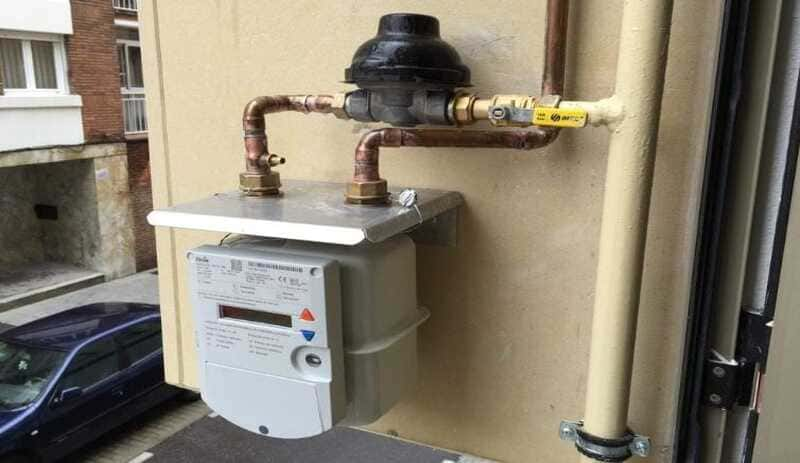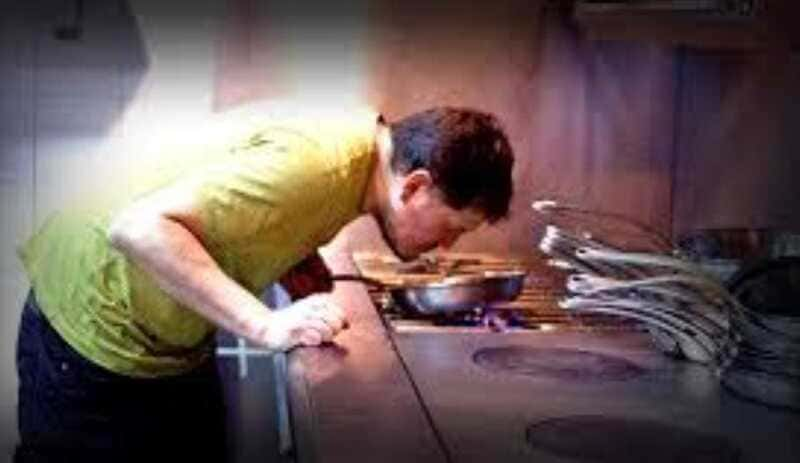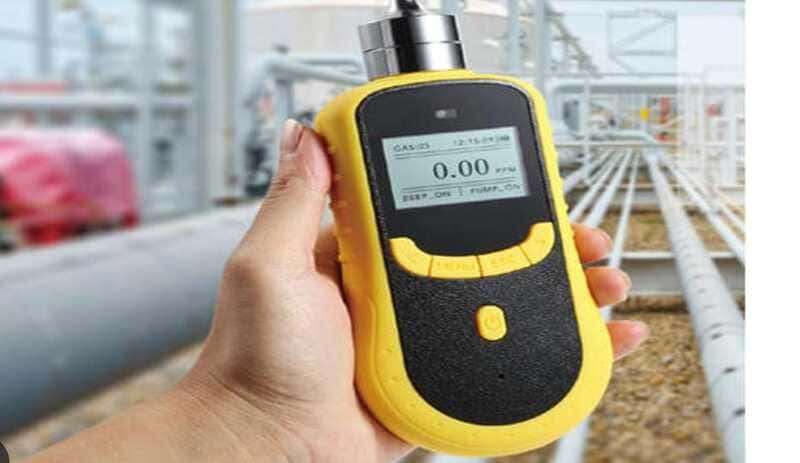Home safety is one of the main concerns of any person. When it comes to strange smells in the house, especially when gas is involved, it is natural for concerns and worries to arise.
In the case where the house smells like gas but I have electricity, the first reaction is to think there is a gas leak. But what happens when you have electricity and don’t use gas at home? Is it possible for the house to smell like gas without having a gas connection?

In this article, we will explore the possible causes and solutions to the problem that the house smells like gas but I have electricity, so you can maintain safety and peace of mind in your home.
What are the differences between an electric and a gas installation in the home?
An electrical installation and a gas installation in the home have significant differences in several aspects. Some of them are detailed below:
Energy source:
The main difference between an electric and a gas installation is the energy source used. While an electric installation uses electricity as the energy source, a gas installation uses natural gas, propane or butane.
Cost:
The cost to install and maintain an electric installation is generally higher than that of a gas installation. However, the cost of electric power may be lower than gas in some regions.
Safety:
Both installations can be safe if properly installed and maintained. However, a gas facility presents a higher risk of leaks and explosions if not properly maintained or mishandled.

Temperature control:
Gas installations often provide more precise temperature control than electric installations, especially in kitchens and heating systems.
Environmental impact:
Electric installations can be more environmentally friendly than gas installations, as electricity generation from renewable sources, such as solar or wind, is becoming more common. Gas combustion, on the other hand, emits greenhouse gases and other pollutants into the environment.
The choice between an electric or gas installation depends on several factors, such as the cost of energy, the availability of energy sources and personal preferences. It is important to consider safety and environmental aspects when making a decision.
How to detect if there is a gas leak in the home?
If we feel that the house smells like gas but I have electricity, it is important to avoid dangerous situations, such as fires, explosions and gas poisoning. Here are some steps you can take to detect a gas leak in your home:
Use your senses: If you smell a strong gas odor in your home, there is probably a leak. You may also notice a hissing or hissing sound near the gas pipe or gas meter. If you suspect a leak, don’t turn on anything, including lights, cigarettes, candles, stoves, and other appliances that can generate sparks or fire.

Use a gas detector: Gas detectors are devices that plug into the wall and sound an audible alarm if they detect gas in the air. Make sure the detector is working properly and has enough battery power. Place it near gas appliances, such as the stove, furnace, water heater, etc.

Check your gas appliances: If a gas appliance is not working properly, it can cause a gas leak. Check your gas appliances, such as the stove, furnace, water heater and others, for signs of damage, leaks or malfunctions.
Check the gas piping: Inspect the gas piping from the meter to the entrance of the house for any signs of damage, corrosion, or leaks. If you find anything suspicious, call a professional to repair it.
Call for professional help: If you suspect a gas leak in your home and you’re not sure how to handle it, call a utility company, a gas technician, or the fire department immediately. It is also important that you evacuate your home and do not re-enter until a professional confirms that it is safe to do so.
Remember, if you suspect a gas leak in your home, do not attempt to fix the problem yourself. Call a professional and evacuate the area until it is safe to return.
Is it possible that the gas odor is coming from a source other than a gas leak?
A gas odor in a home or building may not always come from a natural gas leak. Although natural gas contains a chemical additive called mercaptan to make it easily detectable, there are other chemicals or substances that can smell similar to natural gas and cause confusion.
Possible sources of gas odors in a home or building include liquid fuels such as gasoline, kerosene or heating oil, some chemicals such as solvents or cleaning products, leaks in the sewer system and problems in the natural gas distribution network due to work done by the gas company.
Upon detection of a gas odor, it is important to take precautions and follow established safety procedures to ensure the safety of people and the building.
Why does my house smell of gas if I only have electricity?
If the house smells like gas but I have electricity, it is important to investigate the cause of the odor to ensure safety in your home. Here are some possible explanations for why your house may smell like gas, even if you only have electricity:
Problems with the sewer system.
Bad or blocked sewer pipes can release gases such as hydrogen sulfide, which resemble the smell of natural gas.
Gas leaks in street supply lines.
Even if you don’t have a gas connection in your home, gas lines in the street can leak, which could generate a gas odor on your property.
Use of chemicals
Some chemicals can have an odor similar to natural gas, such as propane or butane. Therefore, if you use harsh chemicals in your home, such as solvents or cleaners, they could be the cause of the odor.
Other sources of gas odor.
Some plants, cleaning products, and other objects may have an odor similar to natural gas.
It is important that, if you suspect a gas odor, you take safety precautions such as opening windows and doors, not turning on any switches or spark sources, and calling an expert to conduct a home inspection to ensure your safety.
What should I do if I detect a gas leak in my home?
If you detect a gas leak in your home, it is important to take immediate action to ensure the safety of people and the building. The following are the steps you should take if you detect a gas leak:
1- Open windows and doors: The first thing you should do is open the windows and doors to ventilate the area and allow the gas to escape to the outside.
2- Turn off ignition sources: Turn off any source of ignition, such as light switches, electrical appliances, lighters and cigarettes. Do not turn on or off light switches or electrical appliances, as the spark may generate an explosion.
3- Close the gas stopcock: Locate the gas stopcock and close it. If you do not know where the gas stopcock is located, call a specialized technician for advice.
4- Leave the building: If possible, evacuate the building and call the emergency services (such as police, fire or gas services) from outside the building or from a safe place at a distance.
5- Do not turn on the lights or use the phone: Do not turn on the lights or use the phone inside the building, as any spark could generate an explosion. Use your cell phone from a safe place to call the emergency services.
6- Wait for professionals to arrive: Do not attempt to repair the gas leak yourself. Wait for professionals from the emergency services or the gas company to arrive so that they can safely repair the leak.
In conclusion, detecting a gas leak is an emergency situation that requires immediate and responsible action to ensure the safety of people and the building. If in doubt, call the emergency services or the gas company for advice and to act in a safe and professional manner.
